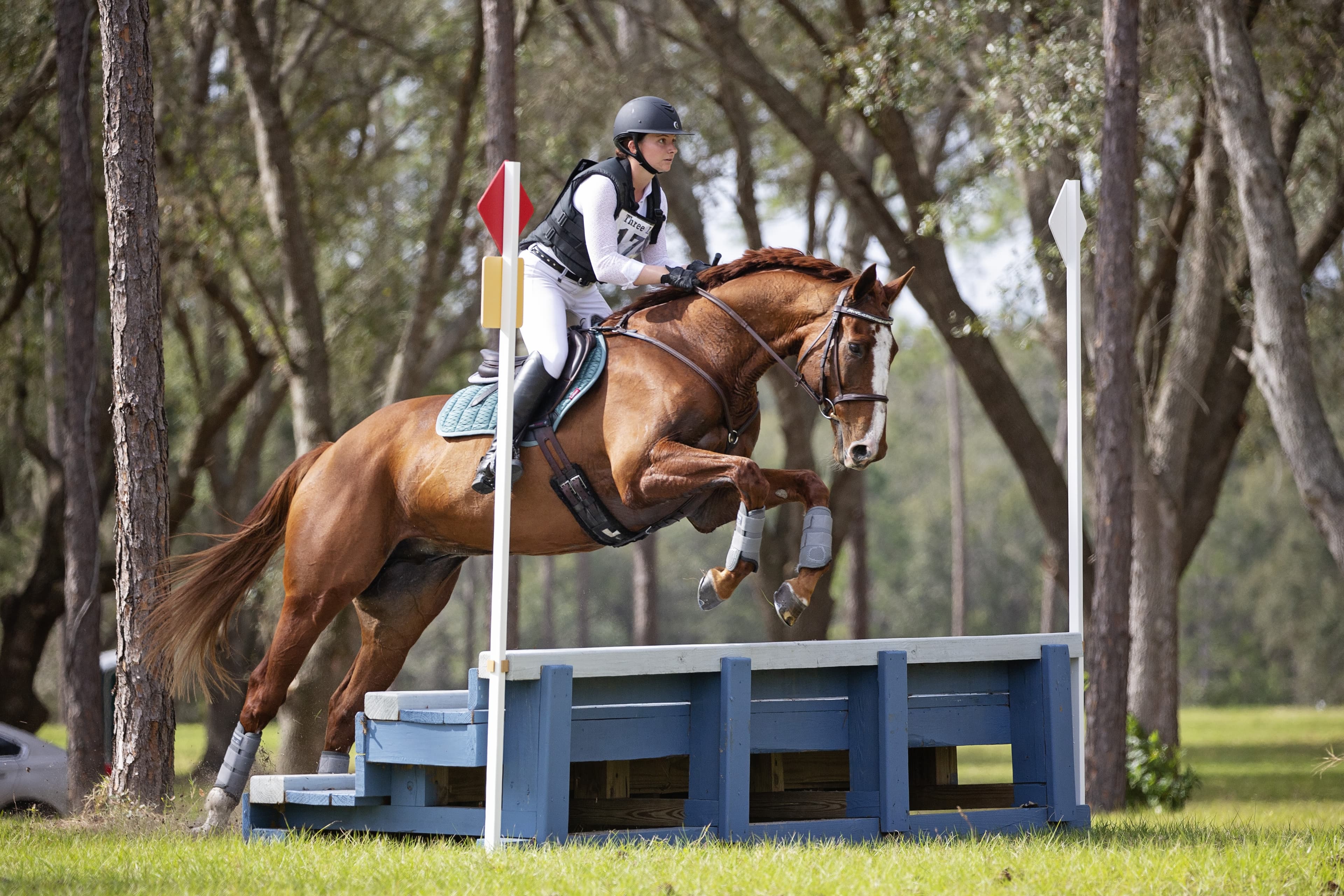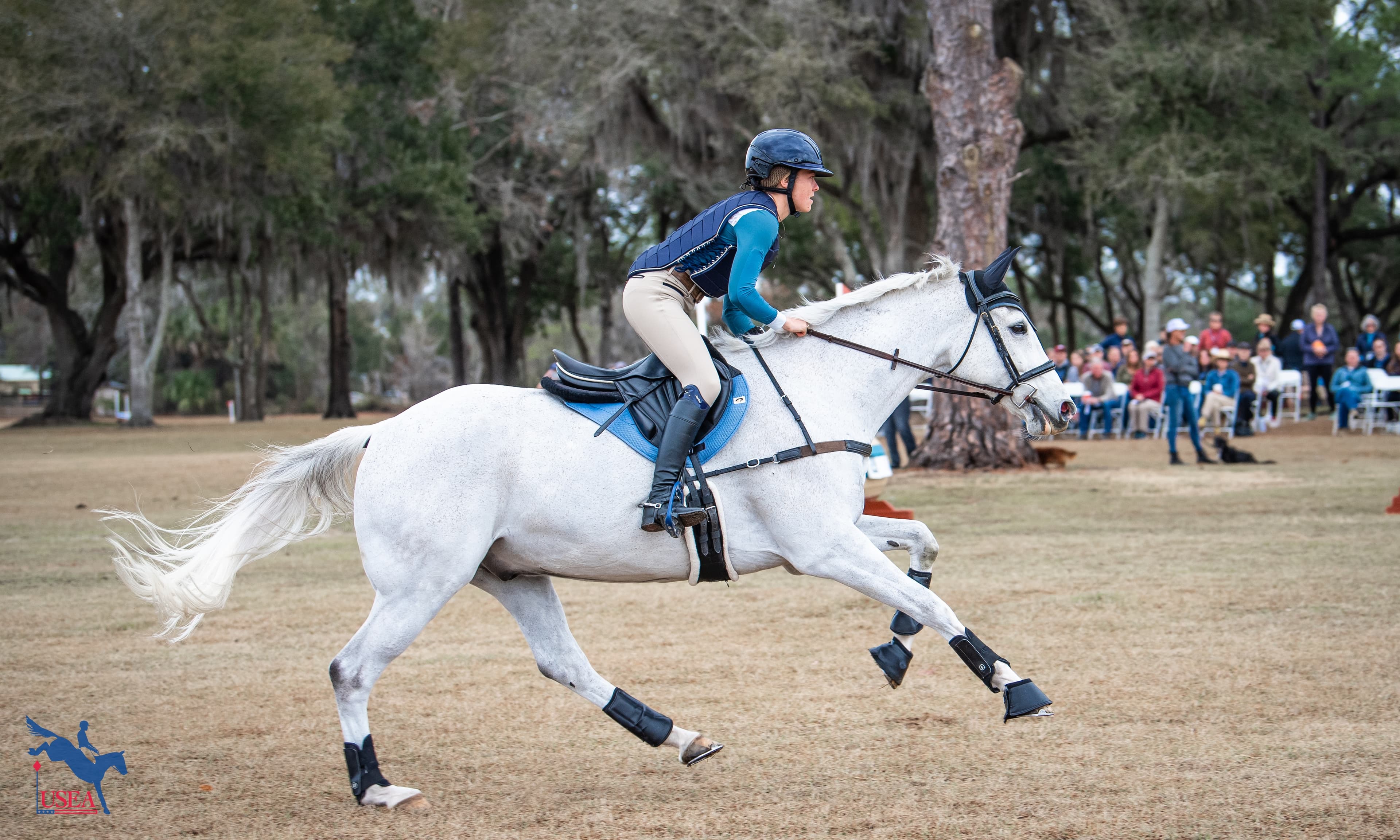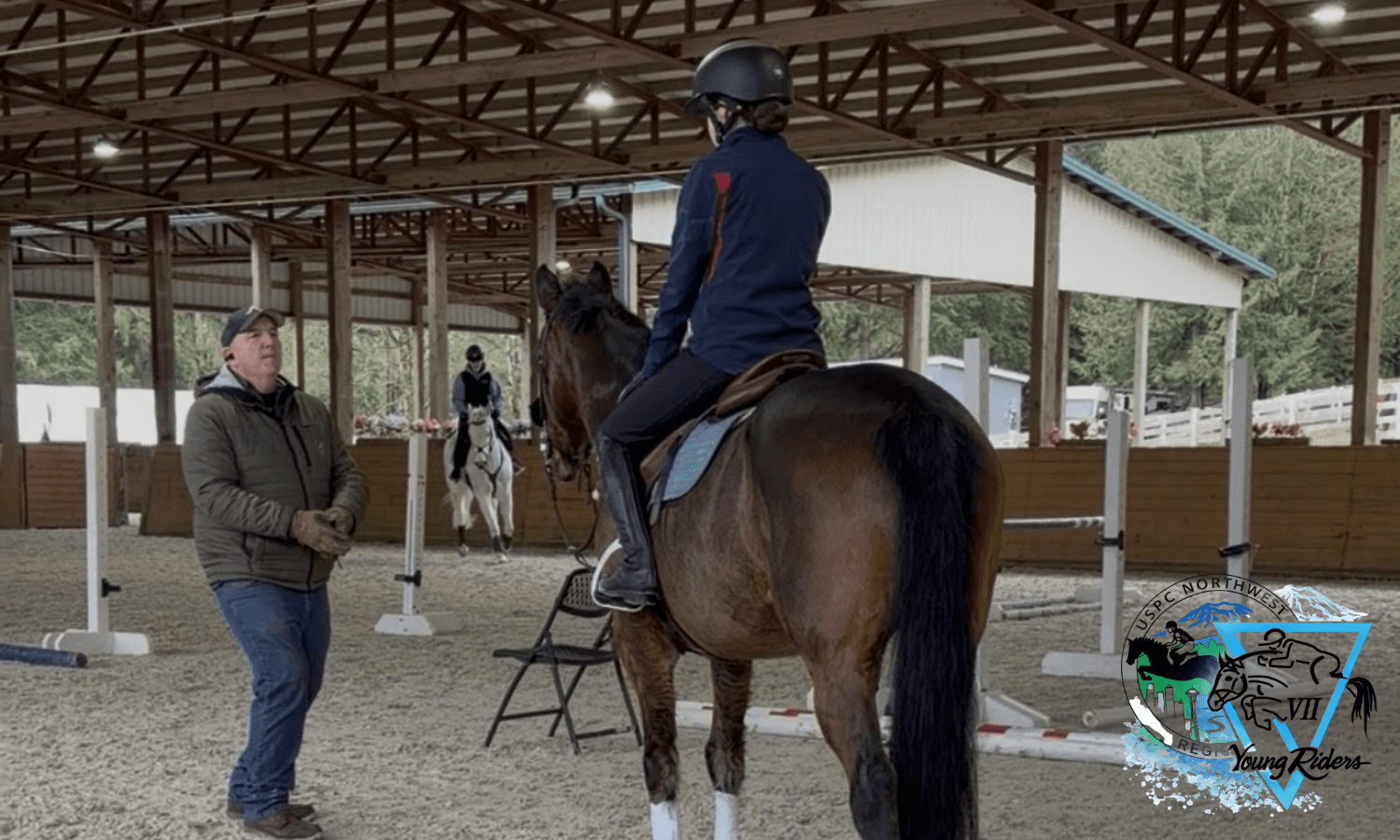USEA Events A-Z: Full Gallop Farm Horse Trials
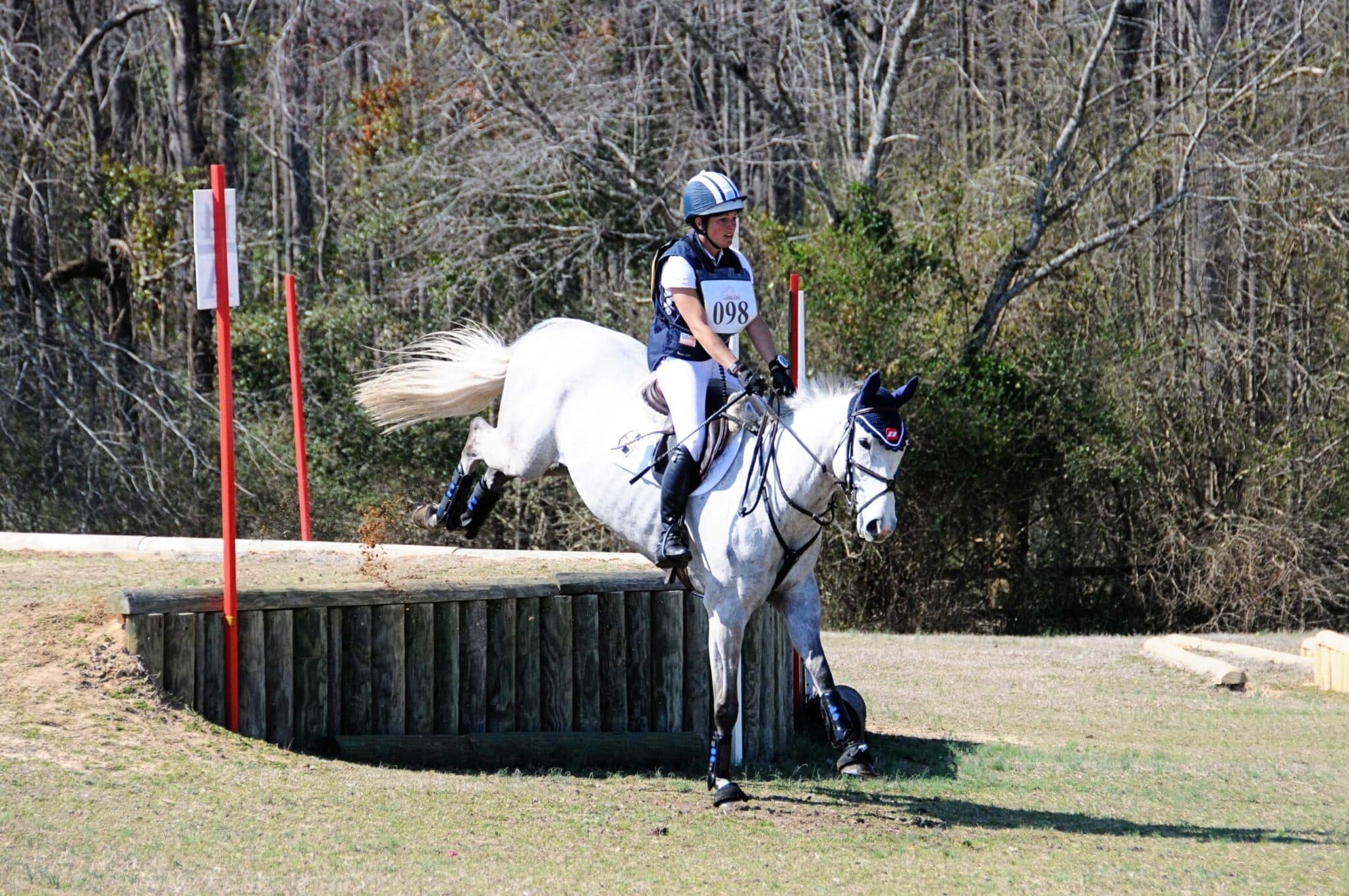
Full Gallop Farm in Aiken, South Carolina (Area III) hosts eight horse trials throughout the year from January to November, offering Starter through Advanced/Intermediate levels. They also host dressage test-of-choice schooling shows on the day before each of their USEA recognized horse trials, host schooling horse trials and combined tests throughout the year, and is open for cross-country schooling year-round. During the winter, Full Gallop Farm rents out stalls to riders who come south for the winter to train.
In 2000, Lara Anderson and her husband Daniel Brown purchased a polo pony turnout facility in Aiken, South Carolina, with the vision of turning it into a fully-equipped eventing facility. Considering that the property had a single barn, some fenced-in pastures, and a mobile home on it at the time, they had their work cut out for them.
“I thought [hosting events] would be something to go ahead and start doing,” said Anderson. “I’d wanted to have a facility where I could do that for some time, so when we moved to Aiken I was looking for a facility that would be good for a cross-country course. This particular piece of property had some hills to it with creeks and a big pond, so I felt like this would be a really nice place to put a cross-country course.”
“Everything pretty much had to be done from the ground up,” recalled Anderson. In addition to building barns that encompass 130 stalls, they also fenced in areas specifically designated for warmup, dressage, and show jumping, and built all of their own cross-country jumps and show jumps. Their first unrecognized event was held in 2001, with their first USEA recognized event following five years later in 2006.
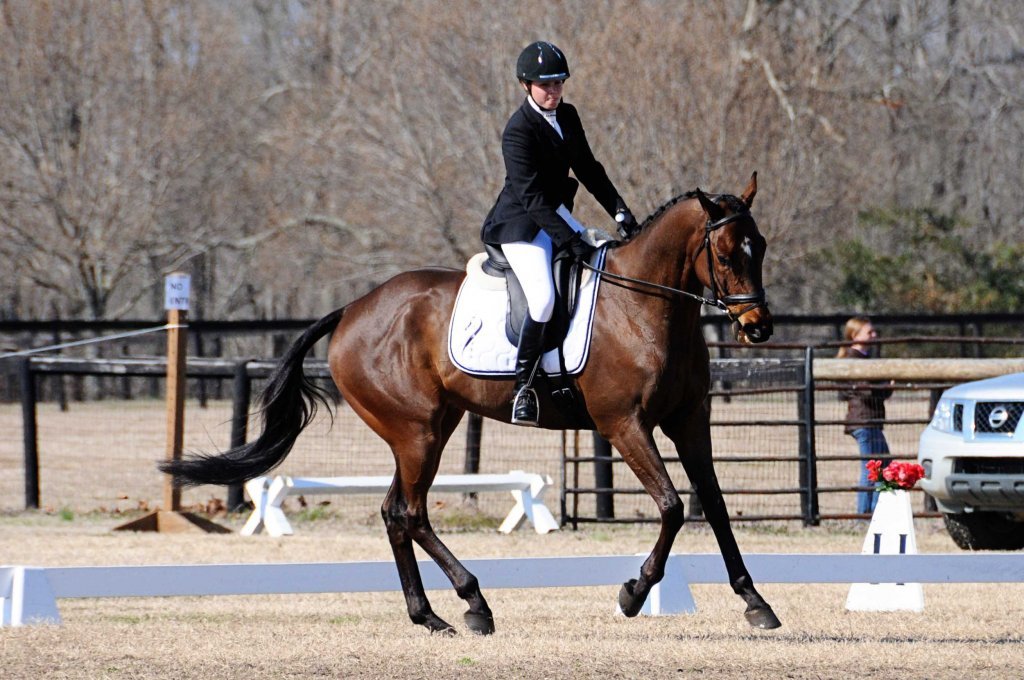
Anderson explained that Full Gallop Farm still runs “old school” events, meaning that both show jumping and dressage are held on grass, and they’re able to do this because of the high quality of the footing. “It’s such forgiving, wonderful footing that even if we have a lot of rain it actually sometimes makes the footing even better. And then we’ve got turf on top of that; old, established turf, because it used to be all hay fields. My husband fertilizes and takes care of it to make sure that we constantly have good turf everywhere . . . We have an aerator now too, and that seems to be helping [the quality of our footing.] We try to do everything we can to improve the footing.”
“The big thing with Aiken is that people moved here because of our footing,” remarked Anderson. “We’re trying to continue the old school way, where we do everything on grass. You’re still running [all three phases] on natural footing. We’re not doing anything to make our footing artificial and I think that’s really important,”
One of the reasons Anderson purchased the property in the first place was because she saw how versatile it could be. The land has flat areas perfect for dressage and show jumping, but also has rolling terrain that would make for an excellent cross-country course. The property also encompasses a five-acre pond with creeks and wooded areas in the middle and along the back of the property. “The course gets to run on some nice grassy areas, it runs down the hill, it runs around the pond, it runs into the back woods,” described Anderson. “We have two bridges that we constructed over the two branches of the creek that run into the pond, and [the course] runs across the bridges. We have two large water complexes, three bank complexes, two sunken roads, and several ditch complexes. We have various jumps all over the place so [the course] can be rotated so you’re not going to be running the same courses every time."

Anderson explained that Julie Zapapas helped out a great deal when they first started, with everything from organizational aspects to helping design the venue’s first cross-country courses. “She put me on track with things to do and what to build,” she said. “She was my very first course designer when we were just running through Preliminary, and then we had Tremaine [Cooper] and Hugh Lochore. Right now, we’re using John Williams; this is our third year [using him.] But Julie was instrumental in getting things going and then we went from there. And she’s still our stadium course designer.”
It’s a bit of a one-woman show at Full Gallop Farm, with Anderson filling many of the organizational roles herself. “I’m the organizer, the scorekeeper, the secretary; I pretty much do all that sort of stuff myself. The people that come [to Full Gallop Farm] for the winter of course help with setup and helping us out, and we have a good core group of volunteers here in Aiken who come and help us all the time . . . We can run low numbers because don’t have a lot of people that we pay to do this or that, we pretty much do it all ourselves.”
Brown does a lot of work around the farm, particularly on the cross-country courses, to prepare for events. He’s also the designer for the Starter through Novice cross-country courses. “He builds the jumps, he works in conjunction with John [Williams] and has worked with [course builder] Tyson Rementer and has really perfected techniques on building cross-country jumps and stadium jumps. He works on the footing and the grounds, getting everything to come into place. He worked the sprinklers and the new well into the warmup and stadium rings.”
Vicky and Tim Shaw, Anderson and Brown’s neighbors, also contribute by volunteering and allowing the use of their fields for parking for events. “They’ve been wonderful to have as neighbors,” said Anderson. She continued, “We’ve had the same safety coordinator since we started, Lois Brittan. Chris Quinn has helped us in the office since the beginning as well, she’s been here for every event I’ve had. Alicia Henderson helped me learn how to do secretarial, she was my mentor on that.”
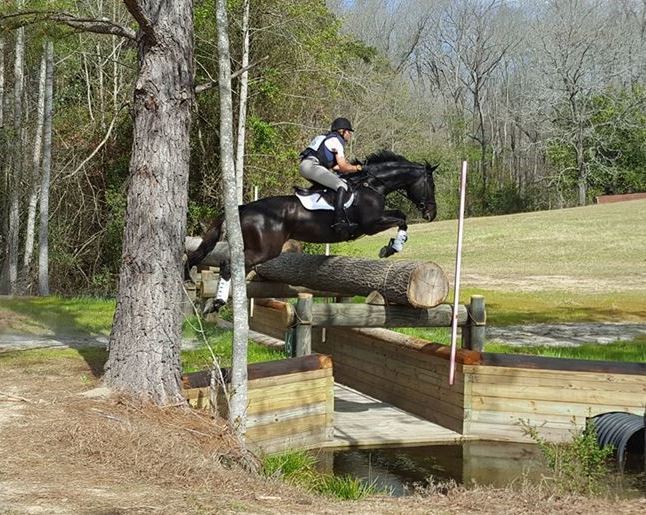
Because Aiken has become one of the places to be during the winter, there are an assortment of opportunities from different venues to get out and compete, either at recognized or unrecognized competitions. So, Anderson explained that they’ve tried to carve out a niche by offering a multitude of different opportunities to suit everyone from the amateur and the young rider to the professional. “We do a Dressage Test-of-Choice the day before each event so that people can get in the ring and the day before the event. We run combined tests, we run schooling horse trials, and we’ve been offering these opportunities since the beginning.”
“We try to run our schooling horse trials with education in mind so that people can come and school the courses prior,” continued Anderson. “We’re going to let [competitors] finish [if they get eliminated] as long as they’re safe. The coaches can come out on the courses, or be in the stadium arena, or be with them in the dressage rings. We’re trying to give everyone a really good way to get people into the sport, or get young riders out there, or kids, or adult amateurs, or even the professionals who come and run their young horses here to make sure they get some outings but don’t want to go to a full-blown event.”
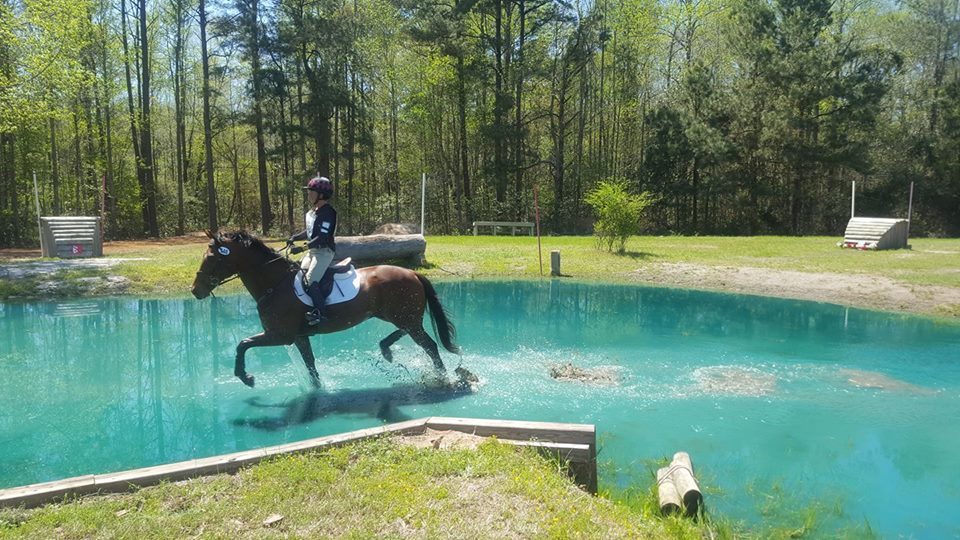
Full Gallop Farm works with trainers to offer camps during the summer. “We have lots of groups that have been doing that for several years, and we always try to run a horse trials or a combined test at the end of their camp days so that they can take what they’ve learned and put it to use.” The farm has played host to many clinics over the year as well, hosting names like Lucinda Green, David O’Brien, Stephen Bradley, and Leslie Law. “A lot of the colleges come here and use our facility to run their clinics. We try to give our facility to them for free so that they can put on some nice clinics, and we’ve contributed to Pony Club over the years as well.”
Most all of the profits from the events run at Full Gallop Farm go directly towards taking Thoroughbreds off the track and rescuing horses from slaughter-bound situations and then retraining them for careers in eventing. “We try to give back to the sport as much as possible,” stated Anderson.
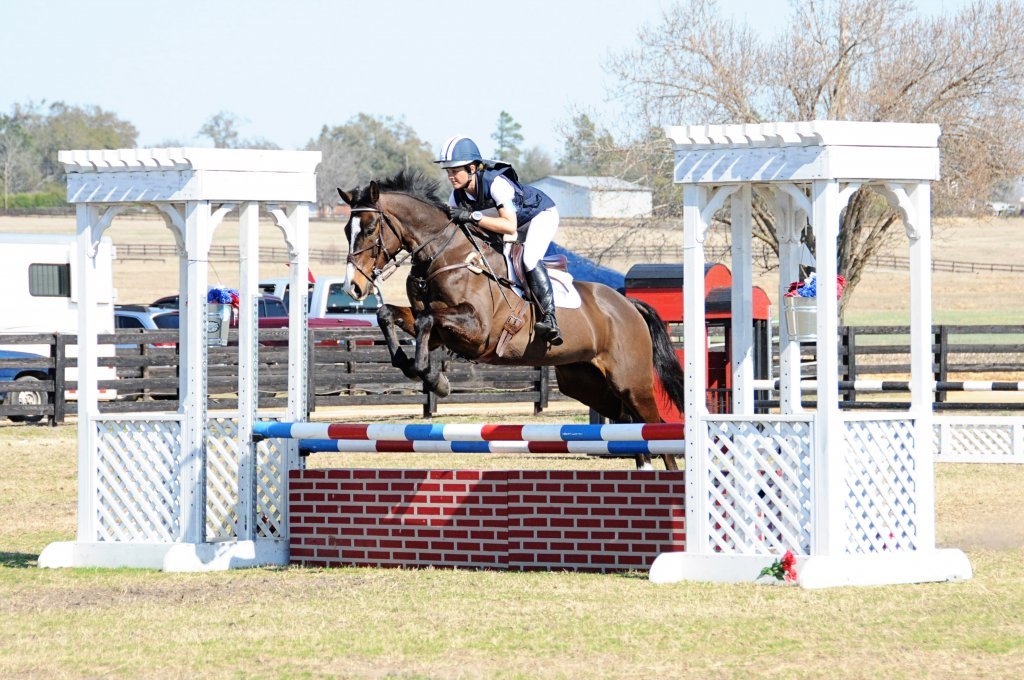
Full Gallop Farm has something for everyone, from riders at their very first event all the way up to professionals with students or young horses. “We really try to cater to everybody, the amateurs along with the pros. We don’t want to try to be one type of facility. We want to be a facility that caters to everybody and we want everybody to come here and have a good time. We purposefully go out and ask people how they feel and what they think. We’re constantly asking for suggestions and different ways to improve things.”
Anderson's favorite part of organizing the events is seeing all the people at the events having a good time. “I love them coming and using the facility and seeing them come off cross-country with a big smile on their face. I really enjoy running events and I think that’s so important and so key, especially if you’re going to be doing a lot of these. You really have to enjoy it and you really have to have fun with it, and I love it. I love being out there with the people, I love when they come to get their ribbons, checking them in, and getting stuff ready in the office. This is not a chore or a burden for me. I come from a corporate background, and this is fun!”
“I try to get out there as much as I can amongst everybody to see what’s going on. I tell our volunteers how much we appreciate them, and every competitor how much we appreciate them. They can go anyplace they want with their dollar, so it’s very important for them to know how appreciated they are, and to get their feedback, and to do everything we can to keep them coming back. We try to be as competitor-friendly as we can. To me, that’s the most important thing.”
The bottom line for Anderson is that Full Gallop Farm is there for the competitors. “We try to make their experience a good experience while giving them a very competitive environment and also trying to make it a fun learning experience as well.”
The USEA is profiling the history behind all USEA recognized events in the USEA Events A-Z series.

